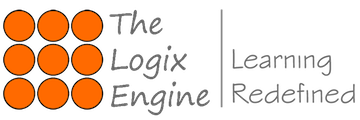
Key Stage 1
KS1 : Mathematics (Age 5-7yrs)
- Counting and Understanding Numbers: Students learn to count to 100, recognize and write numbers, and understand number relationships.
- Basic Arithmetic: Addition and subtraction of small numbers, using concrete objects and visual aids.
- Place Value: Understanding tens and ones in two-digit numbers.
- Measurement: Introduction to measuring length, weight, and capacity using non-standard units (e.g., using cubes or hands).
- Geometry: Basic shapes, their properties, and recognizing patterns.
- Time: Reading and telling time to the hour and half-hour.
- Money: Recognizing and using coins to make simple transactions.
- Data Handling: Organizing and interpreting simple data, such as tally charts and bar graphs.
Key Stage 2
KS2 : Mathematics (Age 7-10yrs)
- Place Value and Number Sense: Understanding and working with larger numbers, including thousands and beyond.
- Arithmetic: Addition, subtraction, multiplication, and division of larger numbers. Introduction to mental math strategies.
- Fractions, Decimals, and Percentages: Understanding and comparing fractions, decimals, and percentages.
- Measurement: Measuring length, weight, capacity, and time using standard units.
- Geometry: Properties of 2D and 3D shapes, angles, symmetry, and transformations.
- Statistics: Collecting, representing, and interpreting data using various graphs and charts.
- Problem Solving: Applying mathematical concepts to real-life situations and word problems.
- Ratio and Proportion: Introduction to ratios, proportions, and simple proportional relationships.
- Algebraic Thinking: Basic understanding of variables, expressions, and simple equations.
Key Stage 3
KS3 : Mathematics (Age 10-14yrs)
- Number and Algebra:
- Advanced arithmetic with integers, fractions, decimals, and percentages.
- Introduction to algebraic expressions, equations, and inequalities.
- Solving linear and simple quadratic equations.
- Manipulating algebraic expressions and formulae.
- Understanding direct and inverse proportionality.
- Geometry and Measures:
- Properties of shapes, angles, and polygons.
- Advanced measurement concepts, including area, volume, and surface area.
- More advanced trigonometry involving right-angled triangles.
- Geometric reasoning, transformations, and coordinates.
- Statistics and Probability:
- Handling and interpreting data in greater depth.
- Calculating and understanding measures of central tendency and spread.
- Probability concepts, including independent and conditional events.
- Ratio and Proportion:
- Solving problems involving ratios, rates, and proportions.
- Using scale factors in geometry and maps.
- Advanced Problem Solving:
- Applying mathematical concepts to complex real-world problems.
- Developing problem-solving strategies and critical thinking skills.
Key Stage 4
KS4 : Mathematics (Age 14-16yrs)
The Key Stage 4 (KS4) math curriculum in the United Kingdom typically revolves around preparing students for their General Certificate of Secondary Education (GCSE) exams or equivalent qualifications. These exams are usually taken around the age of 16. The content covered in KS4 math builds upon the foundation laid in earlier stages and includes a range of mathematical topics.
Number:
- Fractions, decimals, and percentages (including conversions and calculations).
- Surds and irrational numbers.
- Index laws and standard form notation.
Algebra:
- Quadratic equations and their graphs.
- Simultaneous equations (linear and quadratic).
- Inequalities and regions on graphs.
- Functions and their properties.
- Factor theorem and remainder theorem.
Geometry and Measures:
- Properties of angles and polygons.
- Circle theorems and properties of circles.
- Trigonometry, including non-right-angled triangles.
- Constructions and loci.
- Volume and surface area of 3D shapes.
Statistics:
- Data collection methods and sampling.
- Representing data using various charts and graphs.
- Measures of central tendency and spread.
- Probability distributions and tree diagrams.
- Correlation and scatter plots.
Probability:
- Basic and conditional probability.
- Venn diagrams and set notation.
- Mutually exclusive and independent events.
Advanced Problem Solving:
- Applying mathematical concepts to real-world scenarios.
- Critical thinking and reasoning skills.
- Problem-solving strategies for complex problems.
It is important to keep in mind that this is a general overview, and the specific curriculum content can vary depending on factors such as the exam board (e.g., AQA, Edexcel, OCR), the chosen qualification (GCSE or IGCSE).
Key Stage 5
KS5 : Mathematics (Age 16 -18yrs)
Key Stage 5 (KS5) typically corresponds to the two years of education that students undertake between the ages of 16 and 18, also known as “Sixth Form.” During this stage, students often pursue Advanced Level (A-level) qualifications, which are more specialized and in-depth studies of various subjects, including mathematics.
Core Mathematics:
-
Algebra and Functions:
- Further algebraic techniques, including polynomial division and partial fractions.
- Binomial theorem and its applications.
- Exponential and logarithmic functions.
-
Calculus:
- Differentiation and integration techniques.
- Applications of differentiation (e.g., rates of change, optimization).
- Differential equations (first-order only).
-
Trigonometry:
- Advanced trigonometric identities and equations.
- Trigonometric graphs and transformations.
-
Coordinate Geometry:
- Advanced properties of lines, curves, and conic sections.
- Polar coordinates.
Further Mathematics (Optional, but common for students with strong math interest):
-
Complex Numbers:
- Complex algebra and arithmetic.
- Argand diagrams and geometric representation of complex numbers.
-
Matrices:
- Matrix algebra, including multiplication, inverses, and determinants.
- Solving linear systems using matrices.
-
Proof and Mathematical Structures:
- Mathematical proof techniques.
- Set theory and mathematical logic.
-
Additional Calculus:
- Further techniques of integration.
- Second-order differential equations.
-
Further Trigonometry:
- Hyperbolic functions and their properties.
-
Further Algebra and Functions:
- Further polynomial and rational functions.
- Series and sequences.
-
Discrete Mathematics:
- Combinatorics, including permutations, combinations, and the binomial theorem.
- Graph theory and networks.
Please note that the specific content covered can vary significantly based on the chosen A-level mathematics course, the exam board (e.g., AQA, Edexcel, OCR), and any optional modules or additional topics the school offers. A-level mathematics aims to provide students with a rigorous mathematical foundation for higher education in fields such as mathematics, engineering, sciences, and economics.
Other Info
| Duration | 60-90 Minutes |
| Session | 1/Week |
| Age | 6-12 Yrs |
| Price | Dh 1500/10 Sessions |
All prices excluding VAT. Look for special packages and discount offers in the promotion section.
